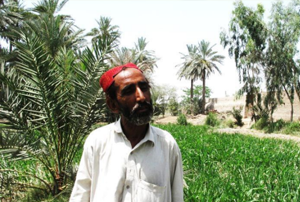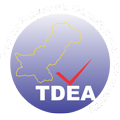“We used to cajole them and bribe them [the authorities] for our own right, but God bless PEHE. It is through their efforts that we can now stand with dignity in front of the public servants and demand our right in the most proper manner,” says a satisfyingly smiling Muhammad Ismail.
A farmer turned small-scale landowner by profession, Muhammad Ismail, is a resident of village Allah Rakhio Shar, union council and township Rorhi, district Sukkur. This rural area, like all the rural areas of Sindh, is dependent on agriculture for its survival.

Agricultural dependence is dangerous in areas that are on the tail-end of the irrigation system just like Rohri. Muhammad Ismail says, “My ten acres of land were often irrigated either through bribery or influence,” adding that they never thought a system existed thatwas to be implemented.
Ismail, who also chairs the farmers’ organization of his area, was not alone in facing the imposed water scarcity. He and his colleagues complained to the relevant offices of the Irrigation Department, Sindh about how their water was being stolen, but it all went in vain.
Participatory Efforts for a Healthy Environment (PEHE), a local civil society organization implementing a project in the region on water rights under the USAID Citizens’ Voice Project, was working on formation of Farmer Organizations (FOs) at village/union council level whose members received trainings on water rights, irrigation system, and the processes through which they could approach the relevant public authorities. This in turn enabled Ismail, along with many of his fellow farmers, to engage with not only the immediately approachable but also the higher irrigation authorities and acquire the rightfully deserved fair share of water and irrigation facilitation through proper means.




















